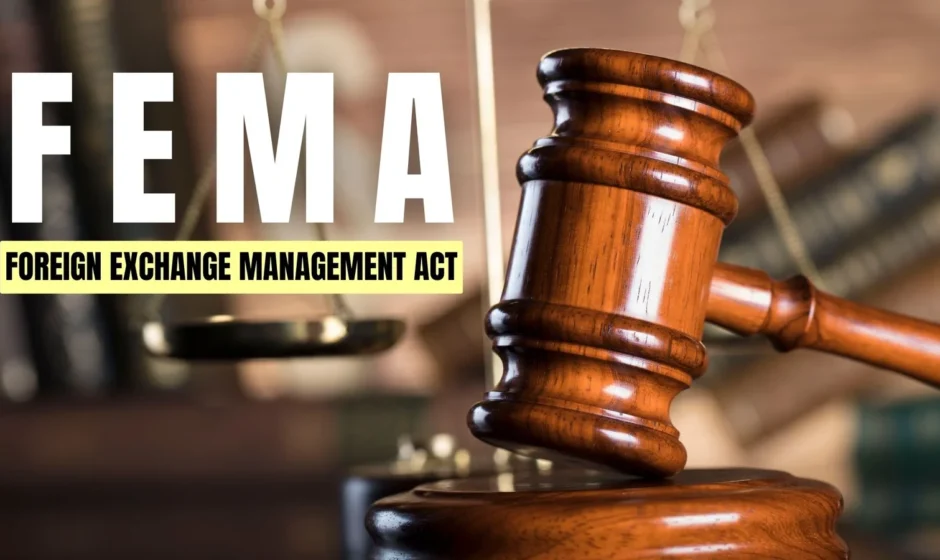In today’s interconnected global economy, businesses in India increasingly engage in cross-border transactions, be it for trade, investments, or collaborations. The Foreign Exchange Management Act (FEMA), 1999, governs these transactions to ensure the orderly development and maintenance of the Indian foreign exchange market. Understanding FEMA regulations is essential for businesses to operate seamlessly while staying compliant with India’s legal framework.
What is FEMA?
The Foreign Exchange Management Act (FEMA) is a regulatory framework enacted to facilitate external trade, promote foreign exchange market stability, and ensure proper utilization of foreign currency. It covers all aspects of foreign exchange transactions, including payments, investments, and repatriations involving residents and non-residents.
FEMA replaced the earlier Foreign Exchange Regulation Act (FERA) and shifted focus from regulation to management, aiming to foster a business-friendly environment.
Key Objectives of FEMA
- Facilitating External Trade: Encouraging international trade and payments.
- Promoting Foreign Investment: Simplifying the procedures for Foreign Direct Investment (FDI) and Overseas Direct Investment (ODI).
- Managing Forex Transactions: Ensuring compliance in all foreign exchange dealings.
- Preserving the Forex Reserves: Ensuring that foreign currency is used appropriately and efficiently.
Applicability of FEMA
FEMA applies to:
- Individuals, companies, and entities involved in forex transactions.
- Foreign exchange transactions including imports, exports, and capital flows.
- Foreign exchange dealings by banks and financial institutions.
It impacts both current account transactions (e.g., foreign travel, education, and remittance) and capital account transactions (e.g., investments, loans, and repatriation of profits).
Recent Developments and Amendments in FEMA (2025)
- Enhanced Reporting Requirements:
- Businesses need to comply with stricter reporting timelines for FDI and ODI transactions.
- Filing of Annual Return on Foreign Liabilities and Assets (FLA) has been digitized and simplified.
- Revised Sectoral Caps:
- Sector-specific amendments have altered FDI caps to encourage foreign investments while protecting national interests.
- Focus on Non-Resident Transactions:
- The treatment of transactions with non-residents has been clarified, especially for startups availing foreign funds.
- Easing Outflows for Startups:
- Startups can now invest more freely abroad under certain conditions, opening up opportunities for global collaboration.
Key FEMA Compliances for Businesses
- Adhering to Authorized Routes:
- Foreign exchange transactions must go through authorized dealers like banks.
- Timely Filing of Documents:
- Submit forms like FC-GPR (for FDI), FC-TRS (for transfer of shares), and FLA (annual return) within prescribed timelines.
- Monitoring Borrowings and Investments:
- ECB (External Commercial Borrowings) and ODI must comply with FEMA limits and approvals.
- Managing Repatriation:
- Profits, dividends, or capital repatriation must align with FEMA norms.
- Understanding Permissible Transactions:
- Identify transactions under the automatic route vs. those requiring RBI approval.
Common Challenges Businesses Face
- Complexity of Regulations:
- FEMA’s detailed provisions can be overwhelming, especially for startups and small businesses.
- Errors in Reporting:
- Delayed or inaccurate filing can attract penalties or compliance scrutiny.
- Uncertainty in Forex Transactions:
- Fluctuating forex rates and regulatory updates can complicate planning and operations.
Tips to Stay Compliant
- Engage with Experts:
- Work with Chartered Accountants and FEMA consultants to navigate complex provisions.
- Automate Reporting:
- Use software tools to manage filings and keep track of deadlines.
- Stay Updated:
- Regularly monitor notifications from the RBI and FEMA amendments.
- Conduct Periodic Audits:
- Review your forex transactions periodically to identify and rectify discrepancies early.
Conclusion
FEMA regulations form the backbone of India’s foreign exchange governance. For businesses, understanding and adhering to these rules ensures smooth operations and mitigates risks. The evolving landscape of FEMA compliance, with its emphasis on digitization and transparency, offers both opportunities and challenges.
By staying proactive and informed, businesses can harness the benefits of FEMA while avoiding pitfalls. For Chartered Accountants, guiding clients in navigating FEMA regulations can strengthen trust and open avenues for strategic advisory services.



